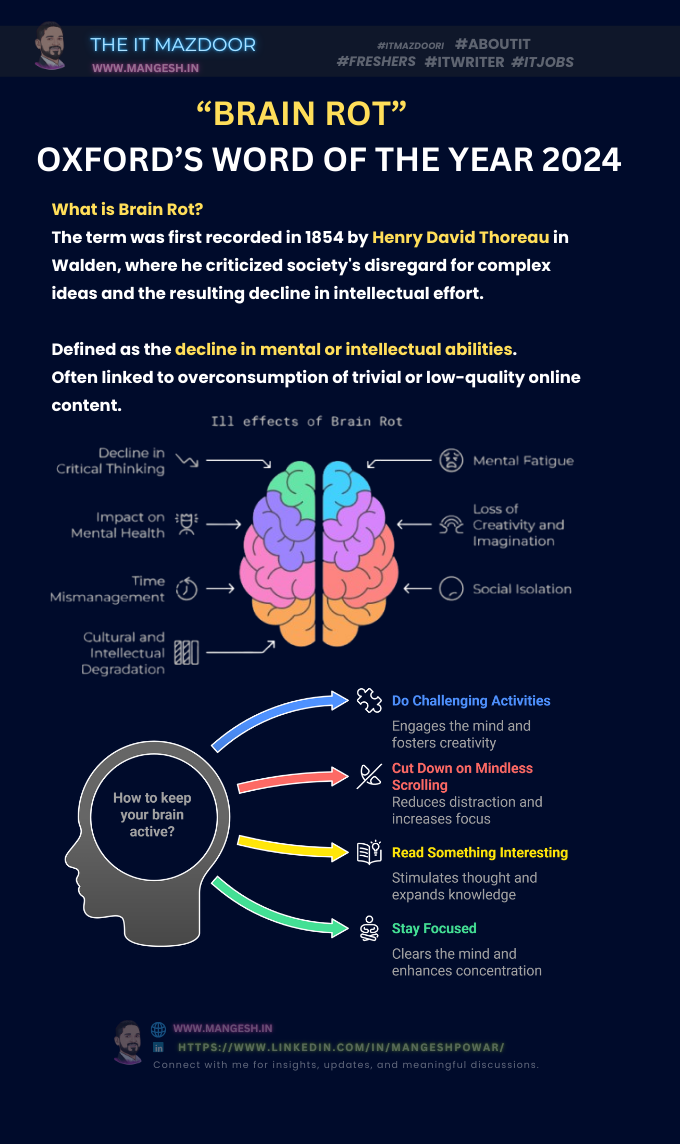
Oxford University selects a “Word of the Year” annually, focusing on words widely discussed in today’s times. For 2024, the chosen word is Brain Rot. This term has gained attention due to how people spend endless hours scrolling on social media, often harming their mental health. If you spend most of your day glued to social platforms, you might be experiencing brain rot.
Over the past 20 years, social media use has skyrocketed. Many people now even carry their phones to the bathroom. This constant exposure has changed habits and impacted thinking abilities. Brain rot, a popular term, describes the mental effects of excessive social media use.
What Does Brain Rot Mean?
Brain rot refers to a decline in thinking and understanding abilities. It happens when you spend too much time watching or scrolling through unimportant content online. Oxford University Press defines it as the weakening of mental or intellectual abilities caused by overconsumption of trivial online material. In simpler terms, it’s when the brain becomes dull from useless content.
Casper Grathwohl, President of Oxford Languages, commented:
“It’s interesting that the term ‘brain rot’ has been embraced by Gen Z and Gen Alpha. These young generations, who create and consume digital content, are using this term on the very platforms said to cause brain rot. It shows their cheeky self-awareness about social media’s negative effects.”
Brain Rot in History
Although brain rot is trending now, the term dates back to the 19th century. In 1854, Henry David Thoreau mentioned it in his book Walden. He criticized society’s focus on shallow issues and wrote:
“When England is looking for a cure for potato rot, will anyone try to find a cure for brain rot? This disease is much more widespread and deadly.”
Today, the term has resurfaced to describe how digital habits impact modern minds.
The following infographic I created throws more light on “Brain ROT” and ways to tackle it:


